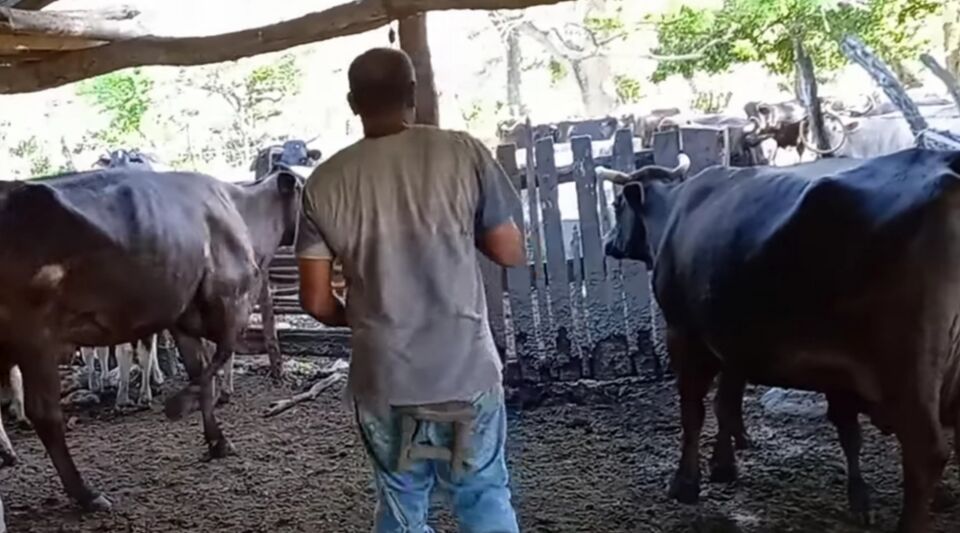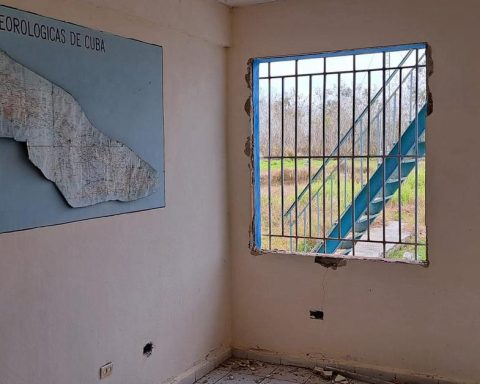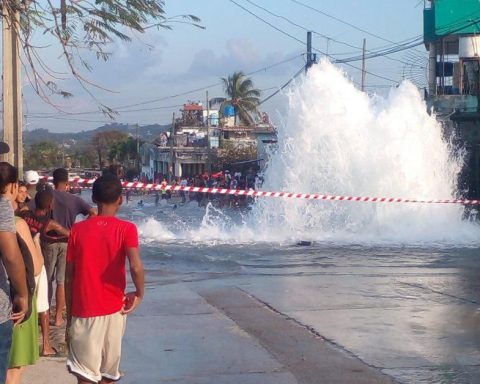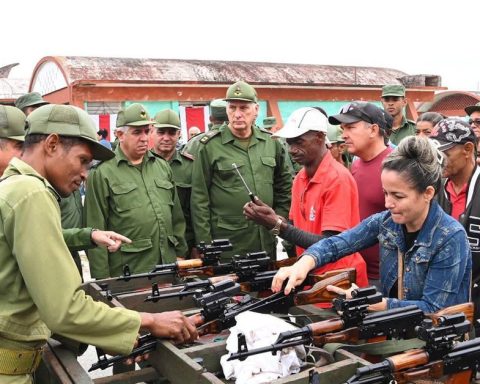Without knowing exactly why, satisfaction reigned in the parliamentary agri-food committee for the announced Law for the Promotion and Development of Livestock, which in recent days has been the focus of several reports in the local press without news -so of the draft is known– that can influence the pressing shortage problem in the country. The new regulations essentially provide for changes in terms of sustainability, animal welfare and meat quality control that are more typical of countries where there is meat, which is far from being the Cuban case.
In fact, the session confirmed that the changes that have been introduced so far to improve agricultural or livestock production have failed. “We take measures and agreements that are not complied with in practice and this affects the producers and makes us lose credibility,” said Emilio Interián Rodríguez, deputy for Arroyo Naranjo and a rancher himself, who urged them to “solve immediately” the non-payments to the producers. “The peasant families depend on those profits; in addition, non-payments discourage production,” he lamented. And he didn’t have to go far to set an example.
“I recently sent three animals to the slaughterhouse and I still don’t know when I’m going to collect that money. On the other hand, to buy a stallion, necessary to improve the cattle mass, I have to pay in cash. So, how do I do it? It’s not possible progress in agriculture like this,” he said, recounting his own experience.
“I recently sent three animals to the slaughterhouse and I still don’t know when I’m going to collect that money. On the other hand, to buy a stallion, necessary to improve the cattle mass, I have to pay in cash. So, how do I do it?”
The vice president, Salvador Valdés Mesa, had just recognized that Cuban laws are insufficient to promote production and that, furthermore, it has not “been possible to put” resources into it, but there have been recent changes such as allowing the sale of cattle “and the privatization of part of the sector.” He forgot that there has been money for other issues and that, as the representative from Arroyo Naranjo reminded him, the changes are useless if there are no effects beyond the paper.
Valdés Mesa, in any case, was not very convinced with the news, judging by his words. “State control over livestock has been weakened. We have disorder in the countryside. There are many complaints from producers about the damage of animals to other crops and thousands of landless cattle keepers,” he said.
According to what was outlined in the commission, reality has forced some change in the draft, although we will have to wait for the final text to find out more. “There are elements related to food and nutrition, for example, that cannot be met, because not even companies have that capacity. Only universities and scientific centers have it,” said the authorities, who aspire to increase the livestock mass , something that, they admit, they do not achieve.
“At the country level, 40,000 cattle are illegally killed, but 200,000 die”
“At the country level, 40,000 cattle are killed illegally, but 200,000 die,” a producer told Wednesday to Escambray for a report in which nothing was hidden from the serious situation. “In livestock, life cannot continue the same, applauding plans and results that barely benefit a small number of inhabitants, recycling year after year statistics that shake society” .
According to the text, among the worst problems are banditry, which, he explains, forces the cows to spend too much time locked up, or emigration, which is also influenced by the lack of attention to rural communities and the countryside in general.
The note put the finishing touch on another published days before in Newspaper 26, which warned that, in the province of Las Tunas, there were more than 11,500 deaths in the year and the birth plan did not even reach 41%. In addition, and delving into the serious problem of theft that shakes the Island more than ever, it indicated that some 2,580 cows left the productive cycle due to theft and illegal slaughter.
The case also affects milk and, according to the authorities of the territory, the delivery of this product and meat has not been fulfilled and the hiring of the productions for 2023 does not even reach 14%. The question is not trivial, since as long as the State does not comply, the producer cannot sell independently. Minister Ydael Pérez Brito said that, of more than 9,000 owners, only about 256 slaughter animals, adding that the measures taken by the Government are to “make producers fall in love with them.”
________________________
Collaborate with our work:
The team of 14ymedio He is committed to doing serious journalism that reflects the reality of deep Cuba. Thank you for accompanying us on this long road. We invite you to continue supporting us, but this time becoming a member of our newspaper. Together we can continue transforming journalism in Cuba.

















